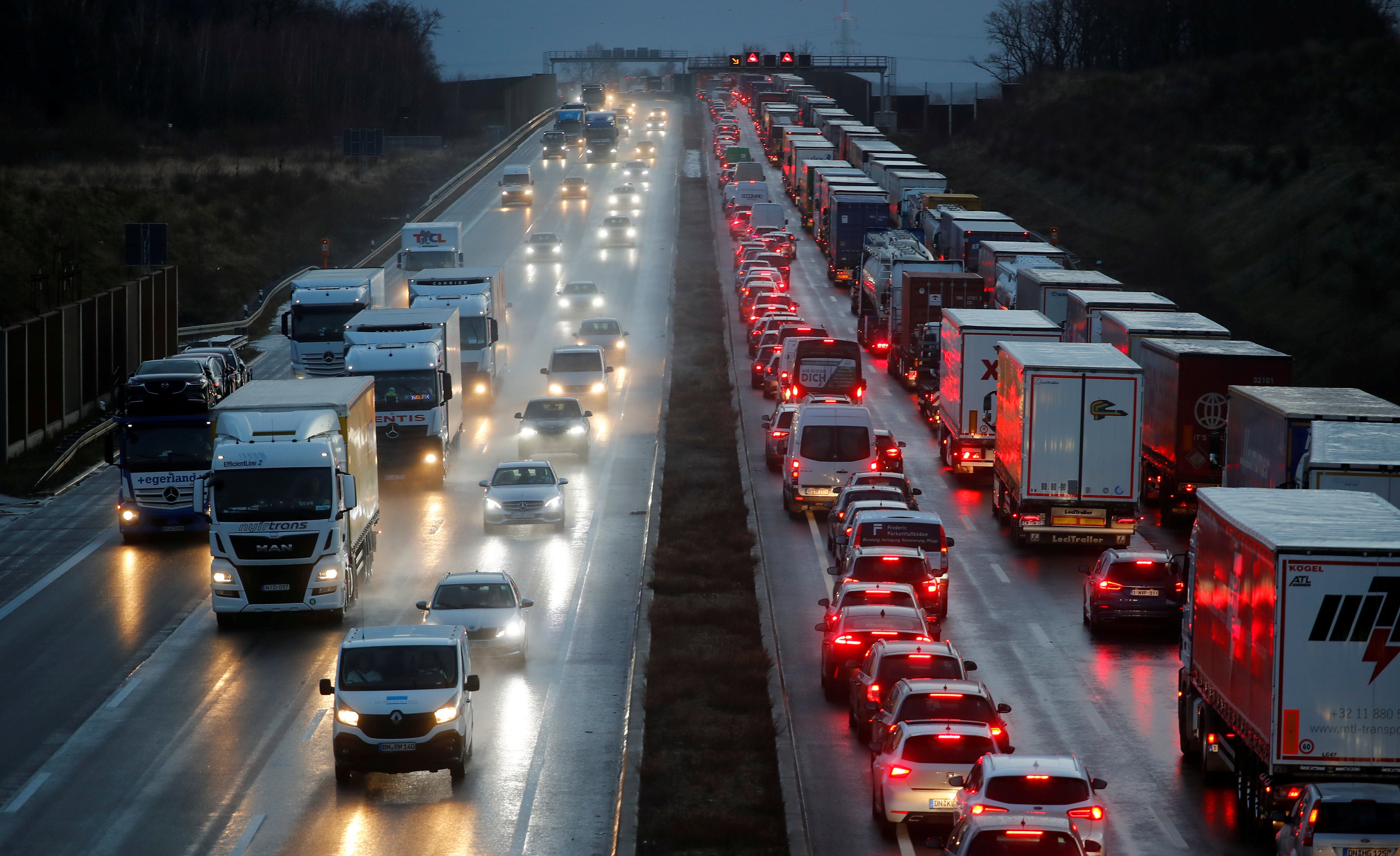Emissions have already surged back to pre-pandemic levels, UN report finds
Greenhouse gases are at record highs and increasing, meaning the planet is on track for its warmest five years on record

Your support helps us to tell the story
From reproductive rights to climate change to Big Tech, The Independent is on the ground when the story is developing. Whether it's investigating the financials of Elon Musk's pro-Trump PAC or producing our latest documentary, 'The A Word', which shines a light on the American women fighting for reproductive rights, we know how important it is to parse out the facts from the messaging.
At such a critical moment in US history, we need reporters on the ground. Your donation allows us to keep sending journalists to speak to both sides of the story.
The Independent is trusted by Americans across the entire political spectrum. And unlike many other quality news outlets, we choose not to lock Americans out of our reporting and analysis with paywalls. We believe quality journalism should be available to everyone, paid for by those who can afford it.
Your support makes all the difference.Carbon emissions are surging after a temporary lull earlier this year when the coronavirus pandemic brought large swathes of industry and global travel to a grinding halt.
A new report, published on Wednesday by the United Nations and a number of leading climate organisations, found that greenhouse gas concentrations in the atmosphere are at record highs and increasing, meaning the planet is on track for its warmest five years on record.
It is a disturbing trend that shows nations are failing to meet targets, set out by the Paris Agreement, that would keep global temperature increases to well below 2C above pre-industrial levels.
The United in Science 2020 report highlights mounting and irreversible impacts of the climate crisis which are being felt in melting glaciers and ice sheets, rising sea levels and increases in extreme events like droughts, floods and wildfires.
Among the key findings are:
- Atmospheric carbon dioxide (CO2) concentrations are moving in the wrong direction and continue to break record highs
- Reductions in carbon emissions in 2020 will only slightly dent the rate of increase in atmospheric concentrations, the result of accumulated past and current emissions
- At the height of lockdown in April, daily global CO2 emissions dropped an unprecedented 17 per cent from 2019. However, emissions were still equivalent to 2006 levels, highlighting both the steep growth and continued reliance on fossil fuels
- By early June, global daily fossil CO2 emissions were back within 5 per cent of 2019 levels
- Average global temperature for 2016–2020 is expected to be the warmest on record, up about 1.1C from the start of the 20th century
- Between 1979 and 2018, Arctic sea-ice extent decreased for all months of the year
- Global oceans have warmed unabated since 1970 and taken up more than 90 per cent of the excess heat in the climate system
- By 2050, the number of people at risk of floods will increase from 1.2 bn to 1.6 bn.
- In the late 2010s, 1.9 bn people were at risk of water scarcity. In 30 years, this will increase to 2.7- 3.2 bn people
The report involved input from the UN’s World Meteorological Organization (WMO), the Global Carbon Project, Intergovernmental Panel on Climate Change, the Intergovernmental Oceanographic Commission of UNESCO, the UN Environment Programme and the UK Met Office.
WMO Secretary-General, Professor Petteri Taalas, said: “Greenhouse gas concentrations - which are already at their highest levels in 3 million years - have continued to rise.
“Meanwhile, large swathes of Siberia have seen a prolonged and remarkable heatwave during the first half of 2020, which would have been very unlikely without anthropogenic climate change.
“And now 2016–2020 is set to be the warmest five-year period on record. This report shows that whilst many aspects of our lives have been disrupted in 2020, climate change has continued unabated."



Join our commenting forum
Join thought-provoking conversations, follow other Independent readers and see their replies
0Comments